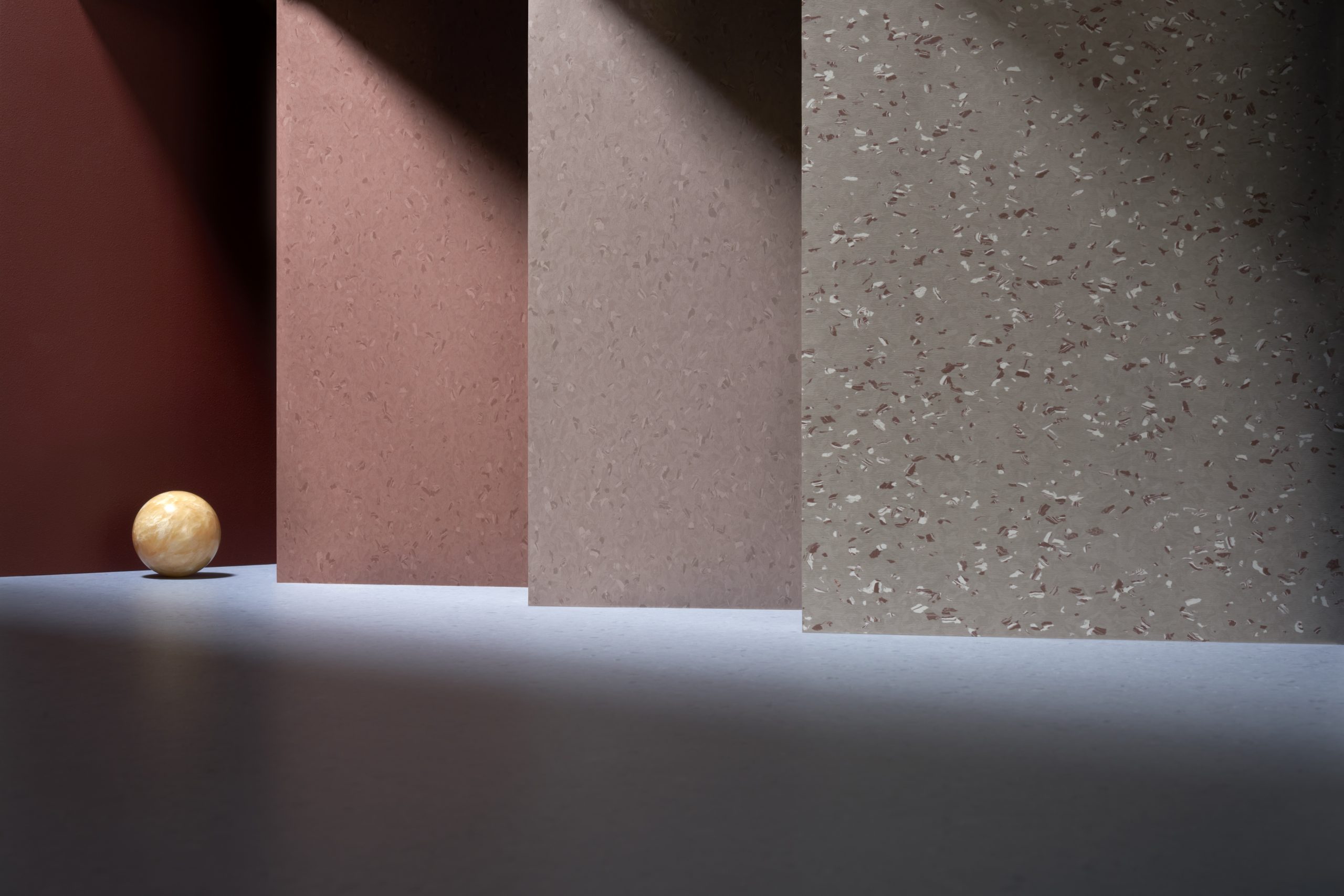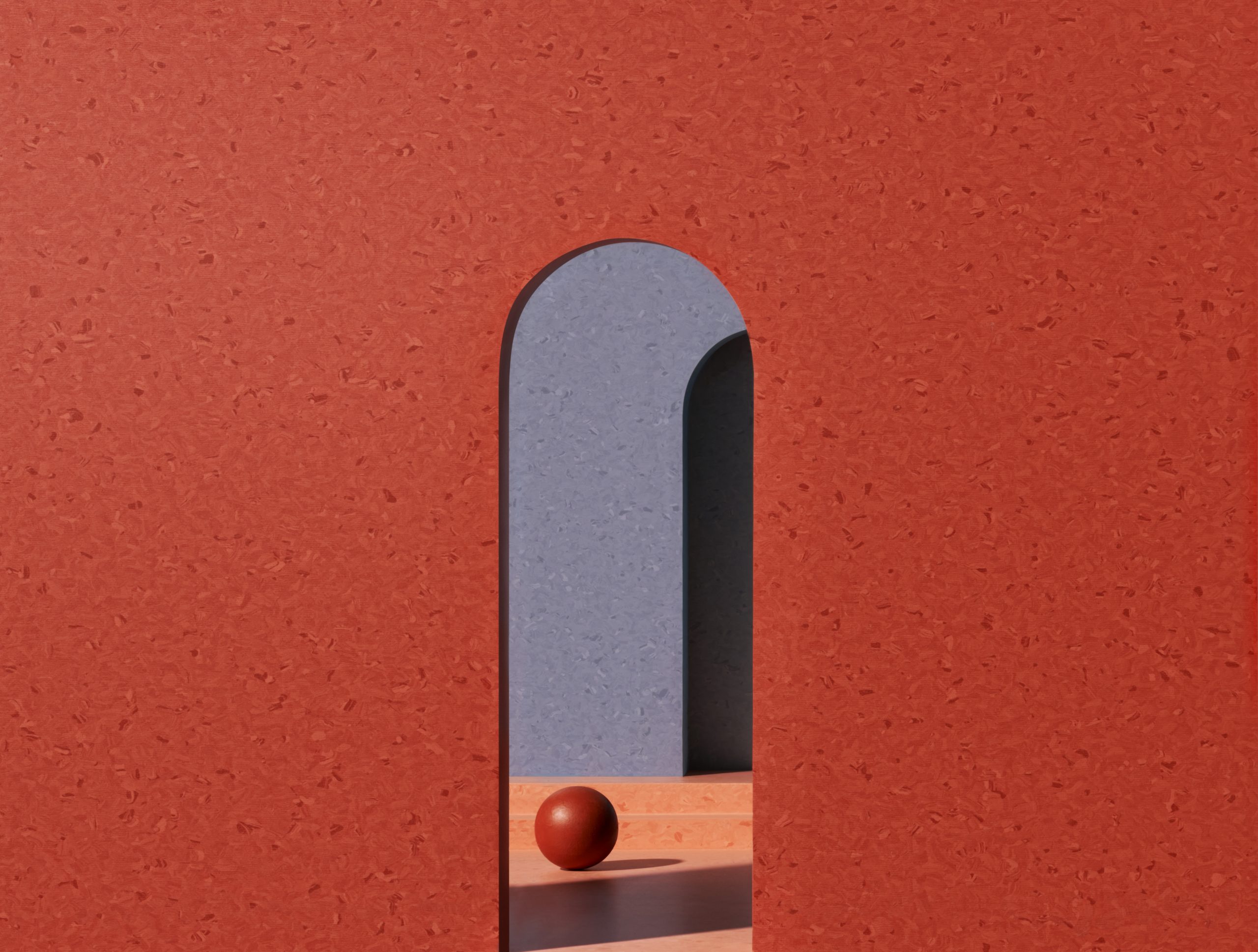Waste is a great resource, says Dag Duberg of Tarkett
WASTE IS A GREAT RESOURCE, SAYS
DAG DUBERG OF TARKETT
DESIGN
“A circular economy is a process for the whole of society and we will not achieve a circular transition if we don’t collaborate,” says Dag Duberg head of sustainability for Tarkett Nordic. For the last 10 years he has worked close with his colleague, Kerstin Lagerlöf, Marketing Manager Sweden and Norway, on making Tarkett a circular company in the Nordics. Below Duberg describes how businesses and politics need to work hand in hand to achieve real change.

TARKETT
Tarkett’s history dates back to the 19th century at a small carpentry shop in Malmö. Today, it is one of the world's largest flooring companies with headquarters in Paris. A circular economy is Tarkett's main driving force. For them, waste is a resource and old floors are recycled into new, equally beautiful ones.
WORDS
PHOTOGRAPHY
Jonna Dagliden Hunt
Tekla Evelina Severin
“In order to achieve a circular economy, we need to collaborate – this is especially true for the construction industry; property owners, architects, contractors, suppliers and logistics partners. But we are also dependent on politicians. We should not see the circular transition as a fine, abstract concept. It is a practical job at all levels and that's what makes it exciting. We have realised that we are like a community builder. We have picked all low-hanging fruit in terms of circularity, but we will not come any further if we don’t receive help from politicians.

Tarkett has developed the world's first bio-attributed vinyl floor, reducing greenhouse gases by 60 percent.
We are facing a number of major investments that could increase circularity even more. We can exemplify this with a hospital, or a nursing home being built. There are, of course, public procurements that the politicians control. We would like to see more rules stating that building materials must contain recycled materials in order to be used in public properties such as an hospital. As a result, it will push the business community, architects and property owners. We see it as our role to influence. And it’s not just us, the whole industry is trying to impact. We are part of Circular Sweden, which is a platform for companies in Sweden that drive circular development, such as H&M, IKEA, NCC, Coca Cola and Houdini. It is true that businesses are ahead of politics.

iQ Natural collection by Tarkett is visually interpreted by photographer Tekla Evelina Severin who plays with dimensions and scale to show off the material.
So in what way do we already contribute? For Tarkett, material recycling is the most relevant in the circular economy. We can wash adhesive and concrete from old floors, we can separate the yarn from the back of textile tiles. We are a large manufacturer of plastic floors and we have now, together with our supplier, developed the world's first bio-attributed vinyl floor where fossil oil has been replaced by bio-naphtha via mass balance. It is a great achievement that gets a ripple effect outside our industry.
But it is not enough to have a nice machine somewhere, or products that can be recycled. The logistic setup is also essential. What bags should we have, pallets? Who should handle it and how should we ensure that it is the right things? How should we communicate this and where should we store it? Today we have collected installation waste, for more than 20 years in Sweden. We are collecting up to 10-year-old floors that are recycled. We have just launched a system where we can take care of textile tiles from offices.


Some of the colours in the collection include Crisp,
Dawn, Dusk and Radiant.
But do you know what the most important aspect is? That it is for real. There is a lot of talk about being circular in the industry. At Tarkett we are very proud of getting the job done. Here we also want to debunk some myths. Many people believe that recycling means that the end result is just grey and ugly, and that the quality gets bad. Well, there is some great news; this prejudice does not match the new technological development. A concrete example is the industrial washing process of homogeneous plastic floors; you can grind them down as many times as you like and get exactly the same colour and quality. We are very proud of that.
Now, in the midst of a pandemic, it is clear that societies have managed to save more resources.
If you look at Earth Overshoot day, which shows when we have consumed our annual ration of resources and emissions, you can see a clear effect: for the first time since the measurements started, this year, it is going in the right direction. It's awful that a pandemic should contribute to that. At the same time, it shows that we must change our habits in order to fix the climate. This is a sign that major changes are needed for both individuals and companies. This means opportunities for Swedish competitiveness, but also for us as a strong player for sustainability.
“A circular economy is a process for the whole of society and we will not achieve a circular transition if we don’t collaborate,”

SUGGESTIONS